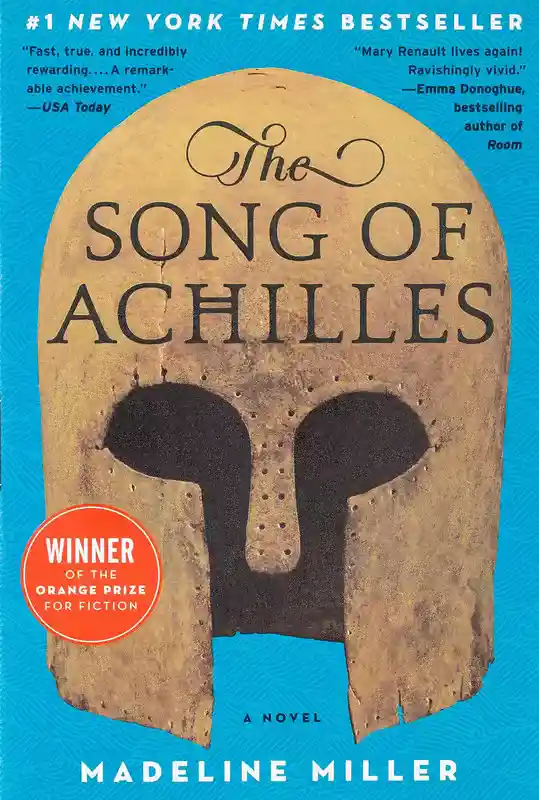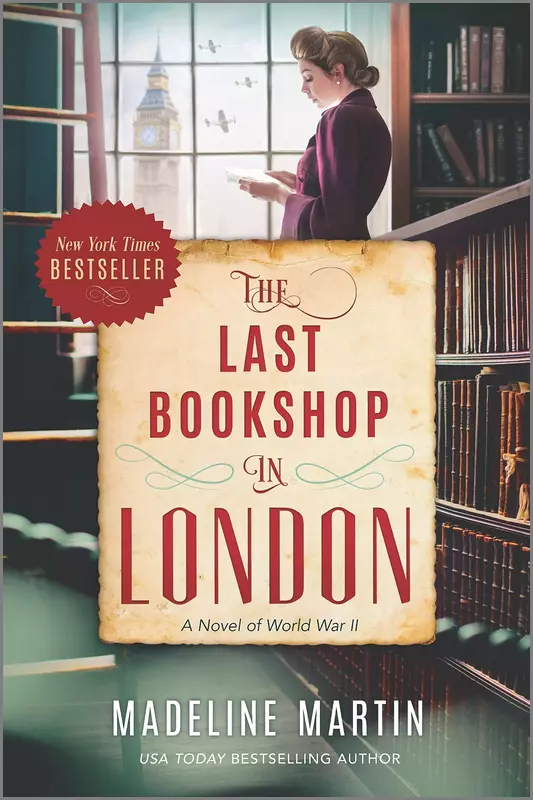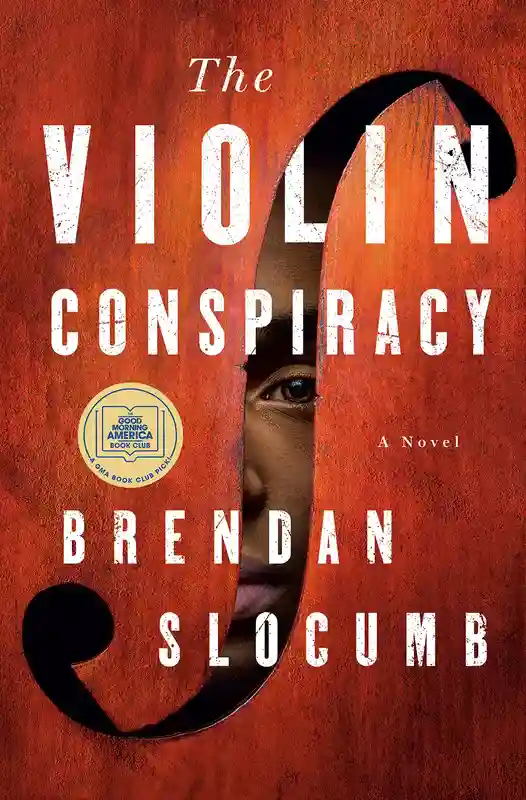This post may contain affiliate links. Read more here.
Book club questions for Harlem Shuffle by Colson Whitehead delve into the intricate themes of crookedness, ambition, family, race, and identity in the midst of a rapidly evolving New York City.
Harlem Shuffle is a gripping crime novel set in 1960s Harlem, where protagonist Ray Carney struggles to balance his legitimate furniture-selling business with his involvement in a heist at one of the city’s most exclusive hotels. As Ray navigates the dangerous world of organized crime, he must also contend with his familial obligations and his desire for a better life for himself and his wife.
How do Ray Carney’s conflicting loyalties and ambitions affect his relationships with his family, friends, and criminal associates? How do the societal and cultural tensions of 1960s Harlem impact the characters’ perspectives and actions? What role does the art world play in the story, both as a source of inspiration and as a potential means of escaping poverty and violence?
Harlem Shuffle raises questions about the nature of criminality and the various ways it can be manifested. It also explores the value of personal legacy and how it shapes one’s identity. The novel’s historical setting, the civil rights era of the 1960s, offers an opportunity to examine the legacy of racial injustice in America and how it continues to impact society today.
I hope you will enjoy analyzing the themes of Harlem Shuffle with your book club and exploring the complexity of Colson Whitehead’s writing. Let me know your thoughts and insights! ✨
Summary | Ending Explained | Book Club Questions
The Synopsis
“Ray Carney was only slightly bent when it came to being crooked…” To his customers and neighbors on 125th street, Carney is an upstanding salesman of reasonably priced furniture, making a decent life for himself and his family. He and his wife Elizabeth are expecting their second child, and if her parents on Striver’s Row don’t approve of him or their cramped apartment across from the subway tracks, it’s still home.
Few people know he descends from a line of uptown hoods and crooks, and that his façade of normalcy has more than a few cracks in it. Cracks that are getting bigger all the time.
Cash is tight, especially with all those installment-plan sofas, so if his cousin Freddie occasionally drops off the odd ring or necklace, Ray doesn’t ask where it comes from. He knows a discreet jeweler downtown who doesn’t ask questions, either.
Then Freddie falls in with a crew who plan to rob the Hotel Theresa—the “Waldorf of Harlem”—and volunteers Ray’s services as the fence. The heist doesn’t go as planned; they rarely do. Now Ray has a new clientele, one made up of shady cops, vicious local gangsters, two-bit pornographers, and other assorted Harlem lowlifes.
Thus begins the internal tussle between Ray the striver and Ray the crook. As Ray navigates this double life, he begins to see who actually pulls the strings in Harlem. Can Ray avoid getting killed, save his cousin, and grab his share of the big score, all while maintaining his reputation as the go-to source for all your quality home furniture needs?
Harlem Shuffle’s ingenious story plays out in a beautifully recreated New York City of the early 1960s. It’s a family saga masquerading as a crime novel, a hilarious morality play, a social novel about race and power, and ultimately a love letter to Harlem.
But mostly, it’s a joy to read, another dazzling novel from the Pulitzer Prize and National Book Award-winning Colson Whitehead.
Selected Reviews for Harlem Shuffle
“A rich, wild book that could pass for genre fiction. It’s much more, but the entertainment value alone should ensure it the same kind of popular success that greeted his last two novels, The Underground Railroad and The Nickel Boys.” –Janet Maslin, The New York Times
“Colson Whitehead has a couple of Pulitzers under his belt, along with several other awards celebrating his outstanding novels. Harlem Shuffle is a suspenseful crime thriller that’s sure to add to the tally — it’s a fabulous novel you must read.” –NPR.org
“Fast-paced, keen-eyed and very funny, “Harlem Shuffle” is a novel about race, power and the history of Harlem all disguised as a thrill-ride crime novel.” –San Francisco Chronicle
Book Club Questions for Harlem Shuffle
The following book club questions have been tailored to this book’s specific reading experience.✨
- How does Whitehead use Harlem Shuffle to explore themes of race and class in 1960s New York City? In what ways do the characters in the novel confront or resist societal expectations based on their identities?
- Throughout the book, Ray Carney navigates a complex web of criminal activity while trying to maintain his reputation as an upstanding businessman. What does the novel have to say about the relationship between morality and success in American society?
- New York City is as much a character in the novel as the people who inhabit it. In what ways does the city evolve and change alongside its inhabitants? How do the depictions of the city in the novel compare to its present-day reality, and what does this reveal about the role of place in shaping individual identity?
- Harlem Shuffle is set against the backdrop of the Civil Rights Movement, with figures like Malcolm X and Martin Luther King Jr. looming large. How does Whitehead use historical context to enrich the novel’s themes and characters?
- Carney’s avoidance of his childhood block speaks to the intensity of his efforts to change his fate. How does the city itself serve as a barrier to his efforts to escape his past? In what ways do the characters in the novel confront or grapple with the impact of their upbringing on their present lives?
- The novel is structured as a series of interlocking heists and cons. What does this structure add to the reading experience, and how does it contribute to the novel’s overall themes and message?
- Ray’s wife, Elizabeth, is an important character in the novel, but her perspective is only briefly explored. How might the novel have been different if Elizabeth were given a more prominent role?
- Carney’s moral compass appears to shift throughout the novel, from only slightly crooked to something more ambiguous. How do his business dealings with other characters in the novel reveal his shifting values and motives? How does his position on the crooked spectrum compare to that of other characters?
- Carney’s role as a husband and father is deeply intertwined with his professional pursuits. How do his personal and professional lives bleed into each other, and in what ways do his family responsibilities shape his decisions and actions? How do his memories of his own father inform his parenting style and approach to family life?
- The Riverside Drive apartments hold a significant symbolic value for Carney. How does his attitude toward this area shift throughout the novel, and what does it represent for him at different points in his life? How does his changing perspective on the apartments reflect his evolving understanding of race and class in New York City?
- The “dorvay” serves as a liminal space between Carney’s two identities. How does this space reflect his internal conflicts and struggles with identity? In what ways do the characters in the novel negotiate the various roles they must play in their daily lives, and what impact does this have on their personal growth and development?
- The Dumas Club holds significant symbolic value for Carney, and his denied admission shapes his subsequent actions. How does this rejection drive his ambition and influence his behavior? In what ways does the pursuit of status and recognition shape the characters’ actions throughout the novel?
- The roles of women in the novel, particularly Elizabeth and Marie, are complex and multifaceted. How do these characters subvert traditional gender roles and expectations? In what ways do their experiences shed light on the broader societal forces shaping women’s lives during the time period in which the novel is set?
- For Carney, leaving his mark on the city through his furniture and other trade holds significant personal value. How does this desire to leave a lasting impact relate to his larger goals and ambitions? In what ways does the city itself serve as both a canvas and a constraint for his creative pursuits?
- Harlem Shuffle contains many twists and turns, with characters constantly betraying one another and revealing hidden motivations. Which character surprised you the most, and why?
- The race protests depicted in the novel bear striking similarities to more recent Black Lives Matter activism. How do these parallels highlight the persistence of systemic racism and inequality in American society? In what ways have the struggles of the black community evolved or remained the same since the time period in which the novel is set?
- The novel takes place over several years, with Ray and his associates aging and evolving over time. How does Whitehead use the passage of time to deepen our understanding of the characters and their motivations?
- The novel is set in Harlem, but the action often takes place in other parts of New York City. How does the city itself function as a character in the novel, and what does it represent in terms of the novel’s themes?
- Whitehead is known for his distinctive prose style. What aspects of his writing did you find particularly compelling or effective in Harlem Shuffle, and why?
- Ultimately, what message do you think Whitehead is trying to convey through Harlem Shuffle? What is the novel’s overall theme or message, and how does it relate to contemporary American society?
Additional Recommendations
Hope you enjoyed my book club and discussion questions for Harlem Shuffle by Colson Whitehead!
Here are some more of my book club recommendations:
The Song of Achilles by Madeline Miller
A thrilling, profoundly moving, and utterly unique retelling of the legend of Achilles and the Trojan War from the bestselling author of Circe
A tale of gods, kings, immortal fame, and the human heart, The Song of Achilles is a dazzling literary feat that brilliantly reimagines Homer’s enduring masterwork, The Iliad. An action-packed adventure, an epic love story, a marvelously conceived and executed page-turner, Miller’s monumental debut novel has already earned resounding acclaim from some of contemporary fiction’s brightest lights—and fans of Mary Renault, Bernard Cornwell, Steven Pressfield, and Colleen McCullough’s Masters of Rome series will delight in this unforgettable journey back to ancient Greece in the Age of Heroes.
The Last Bookshop in London by Madeline Martin
“A love letter to the power of books to unite us, to hold the world together when it’s falling apart around our ears. This fresh take on what London endured during WWII should catapult Madeline Martin to the top tier of historical fiction novelists.”
August 1939: London prepares for war as Hitler’s forces sweep across Europe. Grace Bennett has always dreamed of moving to the city, but the bunkers and drawn curtains that she finds on her arrival are not what she expected. And she certainly never imagined she’d wind up working at Primrose Hill, a dusty old bookshop nestled in the heart of London.
Through blackouts and air raids as the Blitz intensifies, Grace discovers the power of storytelling to unite her community in ways she never dreamed—a force that triumphs over even the darkest nights of the war.
The Violin Conspiracy by Brendan Slocumb
Growing up Black in rural North Carolina, Ray McMillian’s life is already mapped out. But Ray has a gift and a dream—he’s determined to become a world-class professional violinist, and nothing will stand in his way. Not his mother, who wants him to stop making such a racket; not the fact that he can’t afford a violin suitable to his talents; not even the racism inherent in the world of classical music.
When he discovers that his beat-up, family fiddle is actually a priceless Stradivarius, all his dreams suddenly seem within reach, and together, Ray and his violin take the world by storm. But on the eve of the renowned and cutthroat Tchaikovsky Competition—the Olympics of classical music—the violin is stolen, a ransom note for five million dollars left in its place. Without it, Ray feels like he’s lost a piece of himself. As the competition approaches, Ray must not only reclaim his precious violin, but prove to himself—and the world—that no matter the outcome, there has always been a truly great musician within him.
Thank you for reading my book club discussion questions and as always, happy reading! ❤️


